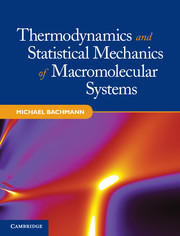Book contents
- Frontmatter
- Dedication
- Contents
- Preface and outline
- 1 Introduction
- 2 Statistical mechanics: A modern review
- 3 The complexity of minimalistic lattice models for protein folding
- 4 Monte Carlo and chain growth methods for molecular simulations
- 5 First insights to freezing and collapse of flexible polymers
- 6 Crystallization of elastic polymers
- 7 Structural phases of semiflexible polymers
- 8 Generic tertiary folding properties of proteins on mesoscopic scales
- 9 Protein folding channels and kinetics of two-state folding
- 10 Inducing generic secondary structures by constraints
- 11 Statistical analyses of aggregation processes
- 12 Hierarchical nature of phase transitions
- 13 Adsorption of polymers at solid substrates
- 14 Hybrid protein–substrate interfaces
- 15 Concluding remarks and outlook
- References
- Index
1 - Introduction
Published online by Cambridge University Press: 05 May 2014
- Frontmatter
- Dedication
- Contents
- Preface and outline
- 1 Introduction
- 2 Statistical mechanics: A modern review
- 3 The complexity of minimalistic lattice models for protein folding
- 4 Monte Carlo and chain growth methods for molecular simulations
- 5 First insights to freezing and collapse of flexible polymers
- 6 Crystallization of elastic polymers
- 7 Structural phases of semiflexible polymers
- 8 Generic tertiary folding properties of proteins on mesoscopic scales
- 9 Protein folding channels and kinetics of two-state folding
- 10 Inducing generic secondary structures by constraints
- 11 Statistical analyses of aggregation processes
- 12 Hierarchical nature of phase transitions
- 13 Adsorption of polymers at solid substrates
- 14 Hybrid protein–substrate interfaces
- 15 Concluding remarks and outlook
- References
- Index
Summary
Relevance of biomolecular research
More than 30 million people, infected by the human immunodeficiency virus (HIV), suffer from the acquired immune deficiency syndrome (AIDS); 2 billion humans carry the hepatitis B virus (HBV) within themselves, and in more than 350 million cases the liver disease caused by the HBV is chronic and, therefore, currently incurable. These are only two examples of worldwide epidemics due to virus infections. Viruses typically consist of a compactly folded nucleic acid (single- or double-stranded RNA or DNA) encapsulated by a protein hull. Proteins in the hull are responsible for the fusion of the virus with a host cell. Virus replication, by DNA and RNA polymerase in the cell nucleus and protein synthesis in the ribosome, is only possible in a host cell. Since regular cell processes are disturbed by the virus infection, serious damage or even the destruction of the fine-tuned functional network within a biological organism can be the consequence.
Another class of diseases is due to structural changes of proteins mediated by other molecules, so-called prions. As there is a strong causal connection between the three-dimensional structure of a protein and its biological function, refolding can cause the loss of functionality. A possible consequence is the death of cells. Examples for prion diseases in the brain are bovine spongiform encephalopathy (BSE) and its human form Creutzfeldt–Jakob disease (CJD).
- Type
- Chapter
- Information
- Publisher: Cambridge University PressPrint publication year: 2014



